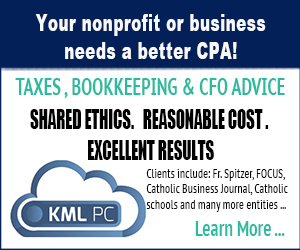Review of The Origins of You: How Breaking Family Patterns Can Liberate the Way We Live and Love, by Vienna Pharaon
Vienna Pharaon’s The Origins of You is one of the most eye-opening, compassionate, and transformative books I’ve read in years. It is not just a book about self-help or psychology – it’s a map to understanding who we are at our core, why we behave the way we do, and how we can finally break free from the patterns that have held us back.
Pharaon, a licensed marriage and family therapist, takes us deep into the concept of “family of origin work” – the exploration of how our earliest relationships, experiences, and wounds shape the way we see ourselves and connect (or fail to connect) with others. Her central premise is as sobering as it is liberating most of the damaging and frustrating patterns we wrestle with today are rooted in unresolved childhood wounds. Unless we name them, understand them, and work through them, they will continue to run the show – often sabotaging our relationships, self-worth, and sense of belonging.
Why is this book extraordinary?
What makes this book extraordinary is Pharaon’s rare blend of clinical insight, vulnerability, and storytelling. She weaves in her own personal history – growing up as a peacekeeper in a
 home where conflict was constant – and shares raw, real-life case studies that are as moving as they are instructive. These stories are not told for shock value; they are chosen to illuminate specific “origin wounds,” such as worthiness, belonging, prioritization, trust, and safety. By seeing these wounds in others, we begin to recognize our own.
home where conflict was constant – and shares raw, real-life case studies that are as moving as they are instructive. These stories are not told for shock value; they are chosen to illuminate specific “origin wounds,” such as worthiness, belonging, prioritization, trust, and safety. By seeing these wounds in others, we begin to recognize our own.
This is not light reading.
Pharaon does not shy away from explicit accounts of abuse, neglect, betrayal, and loss. At times, it’s heartbreaking. But it is never hopeless. Quite the opposite – by bringing these shadows into the light, she gives us the tools to heal them. As she reminds us, this work is not about blaming parents or vilifying the past. Families, even loving ones, are imperfect systems, and every one of us carries wounds from them. The question is: what will we do with them?
Powerful takeaways
One of the book’s most powerful takeaways is that children often trade authenticity for attachment. In other words, we learn – consciously or not – to suppress our true selves in order to maintain connection with those we depend on. We please, perform, adapt, or disappear to avoid rejection, criticism, or abandonment. This survival strategy may have served us as children, but as adults it keeps us from forming genuine, healthy bonds.
Pharaon’s step-by-step process for naming our wounds and replacing self-betrayal with authenticity is worth the price of the book alone.
Practical guidance
Another highlight is her practical guidance. The Origins of You is packed with prompts, exercises, and reflective questions that make this more than just a book you read – it’s a book you do. Whether it’s journaling about “the thing you most wanted as a child and didn’t get,” identifying the ways you repeat family patterns, or practicing the “pause” between stimulus and response, Pharaon invites readers into an active, ongoing process of self-discovery.
By the time you turn the final page, you will not only see yourself differently – you will see everyone differently.
That difficult coworker, the friend who always seems guarded, the partner who withdraws when stressed – suddenly, you will recognize that each person carries a backstory, an origin that explains far more than their surface behavior. This understanding doesn’t mean tolerating harmful actions, but it does invite compassion and perspective.
The most beautiful truth
Perhaps the most beautiful truth Pharaon offers is that our wounds and our gifts are often neighbors. In healing one, we often uncover the other. We can learn to set boundaries without building walls, to communicate directly without cruelty, to engage in conflict as a pathway to deeper intimacy rather than a battlefield.
The Origins of You is not a quick fix – it’s an invitation to deep, sometimes uncomfo rtable, but ultimately life-changing work. It will resonate with anyone who has ever felt unworthy, unseen, unsafe, or misunderstood. And it will especially resonate with those brave enough to believe that change is possible.
rtable, but ultimately life-changing work. It will resonate with anyone who has ever felt unworthy, unseen, unsafe, or misunderstood. And it will especially resonate with those brave enough to believe that change is possible.
I cannot recommend this book highly enough. Read it slowly. Do the exercises. Sit with the stories. And be prepared: once you see your patterns clearly, you’ll never unsee them. And that is the first, crucial step toward freedom.



You must be logged in to post a comment.